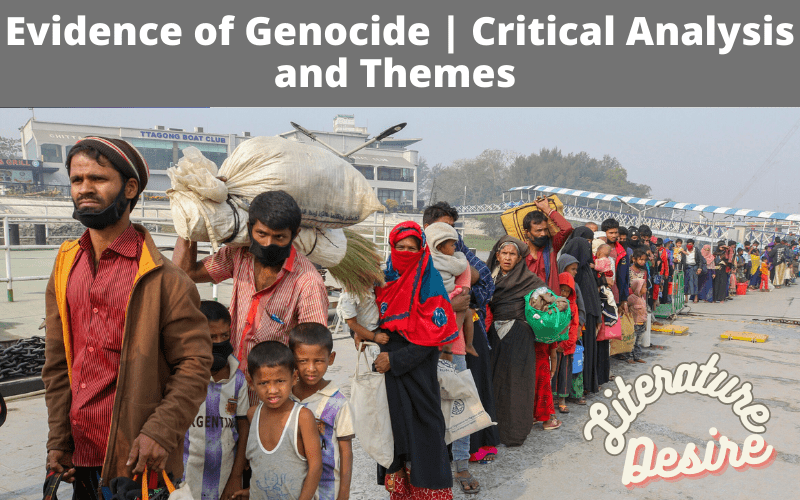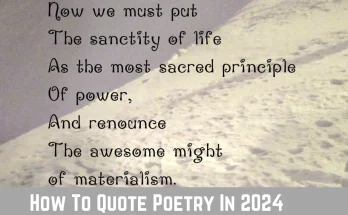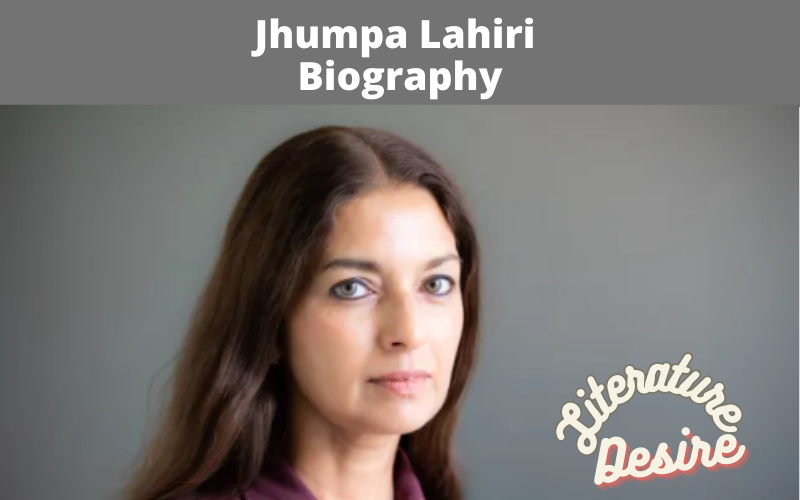Evidence of Genocide is a remarkable poem written by Pakistani poet and Novelist in English Zulfikar Ghose. Exotic Nights, The Loss of India, and Disturbed Nights are remarkable works of Zulfikar Ghose. “Orwell and I” is an important essay by Zulfiqar Ghose.
Written in Zulfikar Ghose’s own unique style, Evidence of Genocide explores the destruction caused by the war. The poem is a remarkable representation of the desolation caused by the war.
The speaker of the poem takes us to his native place where the destruction resulted in the mass killings of the people and migration. The poem sheds light on the notion that war is a cruel phenomenon that not only kills people it also destroys tradition and culture as well.
Form and Structure: Evidence of Genocide
The poem is written in free verse tired which is devoid of any rhythmical structure. Like the other postmodern poets, Zulfikar Ghose chooses to write in free verse which gives him the freedom to express his views without any restriction of meter and rhyming scheme.
The poem is without any arrangement of stanzas and meter. The poem is running free-flowingly without any rhythmical structure. The language of the poem is simple and comprehensible and the ideas are conveyed in a simple way.
Title Significance of the Poem Evidence of Genocide:
The title of the poem is very important because it is truly reflecting the subject matter of the poem. The word “Genocide” means mass killing or wiping out the whole generation.
The poem is called evidence of this mass killing and large-scale destruction. So, the title of the poem is quite appropriate to the subject matter which is discussed in the poem.
Major Themes in the “Evidence of Genocide“
The Nostalgia of the Past
Already going is about the destruction of the war and the effects of war. But there are some dresses in the poem which are quite autobiographical and like other major poems of Zulfikar Ghose, a Strong sense of belonging is reflected in the theme of nostalgia.
At the very start of the poem, the speaker is remembering the days of his childhood, in which the people were living in harmony. The poet says;
When people stopped to chat in the bazaars, children played cricket on flattened earth, and women washed clothes in the nearby stream.
War and its Destruction: Evidence of Genocide
The theme of war is the main theme of this poem. The whole poem is concerned with the cruelties of the war and the effects of war. Human history is full of wars that were waged on petty issues.
The world has to witness world wars that have caused large scaled destruction. Mark Twain, an American writer calls man crueler than animals because of the traits of waging a war. The poet says,
You will see smoke rising from a hundred fires, and hear the soldiers' laughter and shouts in jubilation at the death of some Whose names they never knew, or cared to know.
War has so many negative effects on the human mind that people or not aware of the fact that why they are fighting and what is the purpose of this fight. They do not even know the person who they are killing.
Power of Death
The poem is a great reflection of the power of death. The speaker of the poem is lamenting over the desolation and destruction because death has overcome life. As put up by the poet,
Now the air is heavy with the stench of death that rises from the fields and homes.
The Hypocrisy of Man: Evidence of Genocide
The speaker of the poem also mourns over the hypocrisy and moral degeneration of the men who can play the role to stop the genocide.
Yes, there is ample evidence of genocide, but no one seems to care, or take the blame. The killers roam free, in fields and mountains, while the victims perish, faceless and un-named.
Displacement :
This theme can be explored in the poem when the poet talks about the stream and its life-giving water. water here is a symbol of life that trickle because of destruction, hypocrisy, and corruption.
People have to leave their houses forcefully. They willingly or unwillingly have to bear this loss of their native place and this all was the result of war. This theme is very obvious when the poet uses these lines,
The villagers who drank from it before have all moved away,or else they're dead.
Note: If you want to add more to this article, please write your response in the comment section.



